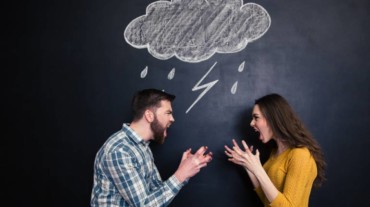Are you in a toxic relationship? Here are 5 tell-tale signs to look out for

- 85
No relationship is perfect. But at the very best, a relationship should be about security, happiness, care, respect, and the freedom to express yourself. However, if you are in a toxic relationship, you might feel unassisted, misunderstood, humiliated, and attacked.
A toxic relationship has many signs, and a fear of your partner is the most telling of them all. If you have to be on the lookout in front of them, perpetually observing what you say and do in order to fend off a fight or quarrel—chances are your relationship is creaky and abusive.
Other signs include: a partner who patronizes you and tries to control you. In a toxic relationship, you might also experience feelings of self-loathing, powerlessness, and despair. In simpler terms, we can summarize it as any relationship makes you feel burdened with worry, rather than feel supported and comforted.
Being cautious of a relationship turning venomous is critical to save yourself from the torment and agony of emotional distress. Every relationship will have its issues. But in a toxic relationship, nothing gets worked through because any conflict ends in an argument.
So here are a few tell-tale signs you need to be aware of to recognize a toxic relationship.
1. Toxic communication
When two people treat each other with malignity and most conversations are riddled with sarcasm, criticism, or aggression—then it is a tell-tale sign of a toxic relationship. At a certain point in time you may even start avoiding talking to each other. Being humiliated or yelled at continuously is not a way how a relationship works.

2. Controlling behaviours
If a partner is always questioning your whereabouts, is upset if you don’t immediately respond to texts or calls, and questions all your decisions—these are all signs of controlling behaviour, which can contribute to toxicity in a relationship eventually.
In some cases, these behaviours of control can lead to abuse as well. Limiting your use or access of the vehicle in the house, money earned by you, the phone or any other necessity is a sign you must not ignore.
3. Constant stress
A little tension is part of every relationship. However, if you are finding yourself constantly on the edge, it is a clear indication that you need to think things through before the relationship goes any further. The ongoing stress can turn into anxiety, further hurting your physical and emotional well being.
Also, read: Your relationship might be terrible for your mental health. Watch out for these 5 subtle signs
4. Ignoring your needs
Every relationship is based on a give and take approach, but compromising all the time, only doing what your partner wants, and/or agreeing to whatever your partner says to do, even when it goes against your wishes or comfort level, is a sure sign of toxicity.
5. Attempts to block socializing and self care
In a toxic relationship, you might have to do away with your usual self-care and habits, including all the activities you once loved or hobbies you enjoyed. You are forced to stop spending time with friends and family, either to avoid conflict with your partner or to get around having to explain what’s happening in your relationship. Alternatively, you might find your free time is wrapped up in dealing with your partner

GIF courtesy: GIPHY
This is how you can deal with a toxic relationship
Now comes the part where you deal with a toxic relationship after figuring out you are living in one.
If you think you’re in an abusive relationship, it’s time to work on a way out of it. If you have friends or family members who are in unhealthy or abusive relationships, the most important thing you can do is be supportive and listen to them. Please don’t judge them.
If the controlling or abusive partner has no intent of changing or working on their miserable acts, ask the person bearing the brunt to step away from the unhealthy relationship. In fact make them understand that leaving this toxic relationship is a better idea, to have a better life. We should all prioritize our mental and physical health. The key is to stand strong on our boundaries.
Get latest updates on health and wellness along with Mind, Emotional Health, Happiness Hacks, Mental Health









